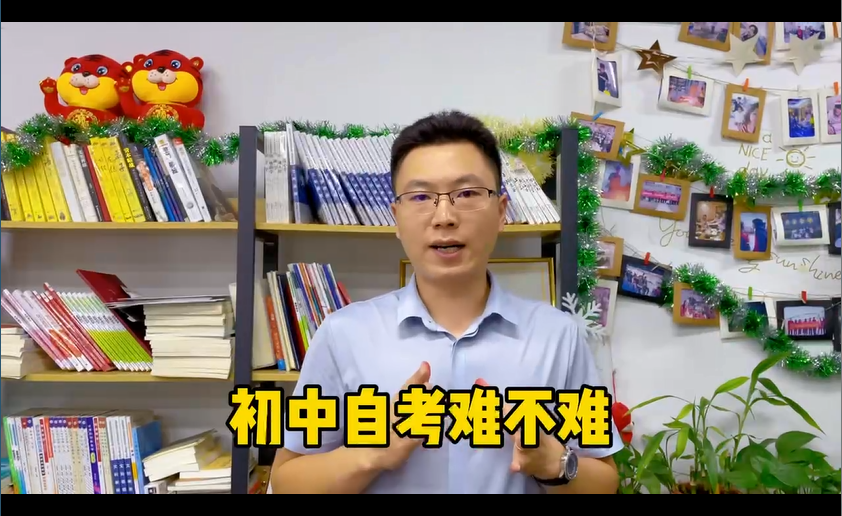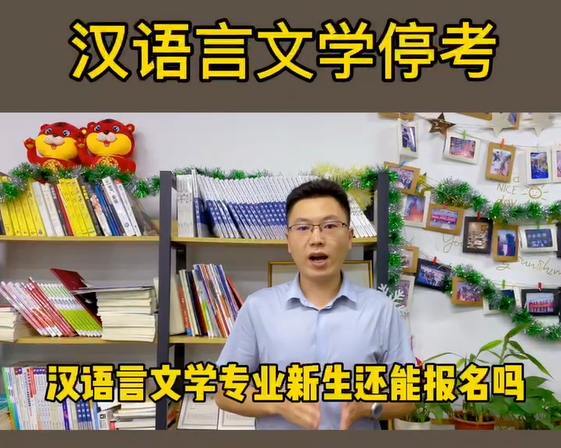全国2008年1月高等教育自学考试旅游英语选读试题
温馨提示
亲爱的学员,您好!
全国2008年1月高等教育自学考试
旅游英语选读试题
课程代码:00837
本试卷满分1 00分;考试时间为1 50分钟.
答案请写在答题纸上,若答在本卷上不记分.
Ⅰ. Multiple Choice: (1X 20=20)
Directions: Beneath each of the following sentences, there are four choices marked A, B, C andD. Choose the one that best completes the sentence.
1. The_______ and _______ tend to be in the upper end of the business travel.
A. British, Japanese
B. Japanese, Canadian
C. American, German
D. French, Australian
2. The WTO has urged national tourism organizations to include both citizens and foreign
nationals in their country as_______.
A. domestic travelers
B. domestic passengers
C. international tourists
D. international excursionists
3. _______ indicates the visits by residents of a country to another country.
A. International tourism
B. Domestic tourism
C. Inbound tourism
D. Outbound tourism
4. Travel by ship did in fact precede travel by train, but it was_______ the mid-nineteenth
century that travel by ocean liner began to show its greatest prominence.
A. that
B. when
C. not until
D. unless
5. _______ pioneered innovation that were revolutionary for the times but which became
standards for chain operations.
A. Four Seasons
B. Holiday Inn
C. Hilton
D. Sheraton
6. There is now a wide range of Exotic and Unusual Holidays. These involve primitive and
slightly dangerous trips, such as_______.
A. trekking around the Himalayas
B. cooking over a camp fire
C. rafting along the Amazon River
D. all of the above
7. In 1985, _______became the first_______ hotel company to open a hotel in China
bearing its own name: the Great Wall_______ Hotel Beijing.
A. Hilton, international, Hilton
B. Sheraton, international, Sheraton
C. Holiday Inn, regional, Holiday Inn
D. Marriott, regional, Marriott
8. There is now a global movement among the developed nations towards _______ of airlines.
A. state ownership
B. partly state-owned
C. private ownership
D. jointly ventured
9. During the 1920s and 1930s_______ was one of the fastest growing segments of the
international tourism industry.
A. cruise tourism
B. aeroplane tourism
C. train tourism
D. bicycle tourism
10. In 1992, tourists from Columbia, Chile, and Uruguay _______ from those of 1991. Tourists arrivals from the Latin American markets will continue to grow.
A. double
B. doubling
C. were doubled
D. had doubled
11. A proliferation of directional signs or promotional material can reduce the _______ of a resort.
A. physical capacity
B. scenic appeal
C. visual appeal
D. aesthetic capacity
12. Once a brochure is set up for printing, the cost of running off a few extra thousand is very small _______ to the overall price, and it may be better to do this rather than______to
reorder at a later date.
A. compare, have
B. compared, having
C. comparing, had
D. compares, has
13. Dissimilar to that of most other retailers, the travel agent _______ carry "stock" of travel
products.
A. won’t do
B. do not
C. did not
D. does not
14. The Pacific Asia Travel Association holds a conference in a member country_______.
A. each year
B. every other year
C. every three years
D. every four years
15. In the past, the hotel general manager, responsible for the overall operation, was primarily a genial host, personally_______ the guests and _______ to it that they were properly_______ for.
A. greet, see, care
B. greets, sees, cares
C. greeting, seeing, cared
D. greeted, saw, caring
16. Which of the following statements is not true?
A. A wife’s second earnings enable the family to buy more and better holidays.
B. Young couples with small children are most likely to take holidays.
C. The elderly are interested in holidays but are not in good health to go abroa
D.
D. People who just start their careers usually lack the funds for holidays.
17. This _______ natural and cultural resource base has become a major asset for China in its effort _______ tourism.
A. unique combine, develop
B. uniquely combined, to develop
C. unique combining, developing
D. uniquely combination, to develop
18. _______local arts and crafts have been _______and the growth of cottage industries______for tourist demand has done much to benefit the economies of _______ regions.
A. Die, regenerate, cater, depress
B. Dies, regenerates, caters, depresses
C. Dying, regenerated, catering, depressed
D. Died, regenerating, catered, depressing
19. Those who say they travel "to escape" or "to relieve tension" can be seen as seeking to satisfy_______.
A. the intellectual need
B. the safety need
C. the esteem need
D. the basic physiological need
20. As modern tourism in China began in the 1920s, the first travel agencies in China were established in_______ in_______.
A. Shanghai, 1923
B. Xian, 1922
C. Guangzhou, 1921
D. Beijing, 1920
Ⅱ. Reading comprehension: (2×10=20)
Directions: Reading the following passages and make your proper choices.
(A)
It is all very well to blame traffic jams, the cost of petrol and the quick pace of modern life, but manners on the roads are becoming horrible. Everybody knows that the nicest men become monsters behind the wheel. It is all very well, again, to have a tiger in the tank, but to have one in the driver’s seat is another matter altogether. You might tolerate the odd road hog, the rude and inconsiderate driver, but nowadays the well mannered motorist is the exception to the rule. Perhaps the situation calls for a "Be Kind to Other Drivers" campaign, otherwise it may get completely out of han D.
Road politeness is not only good manners, but good sense, too. It takes the most cool-headed and good-tempered of drivers to resist the temptation to revenge when subjected to uncivilized behavior. On the other hand, a little politeness goes a long way towards relieving the tensions of motoring. A friendly nod or a wave of acknowledgment in response to an act of politeness helps to create an atmosphere of goodwill and tolerance so necessary in modern traffic conditions. But such acknowledgments of politeness are all too rare today. Many drivers nowadays don’ t even seem able to recognize politeness when they see it.
However, misplaced politeness can also be dangerous. Typical examples are the driver who brakes violently to allow a car to emerge from a side street at some hazard to following traffic, when a few seconds later the road would be clear anyway; or the man who waves a child across a zebra crossing into the path of oncoming vehicles that may be unable to stop in time. The same goes for encouraging old ladies to cross the road wherever and whenever they care to. It always amazes me that the highways are not covered with the dead bodies of these grannies.
A veteran driver, whose manners are faultless, told me it would help if motorists learnt to filter correctly into traffic streams one at a time without causing the total blockages that give rise to bad temper. Unfortunately, modern motorists can’t even learn to drive, let alone master the subtler aspects of roadmanship . Years ago the experts warned us that the car ownership explosion would demand a lot more give and take from all road users. It is high time for all of us to take this message to heart.
21. According to this passage, troubles on the road are primarily caused by_______.
A. people’s attitude towards the road hog
B. the rhythm of modern life
C. the behavior of the driver
D. the car ownership explosion
22. The sentence "Your might tolerate...the rule." (Para 1) implies that_______.
A. our society is unjust towards well mannered motorists
B. rude drivers can be met only occasionally
C. the well mannered motorist cannot tolerate the road hog
D. impolite drivers constitute the majority of motorists
23. By "good sense"(Para 2), the writer means_______.
A. the driver’s ability to understand and react reasonably
B. the driver’s prompt response to difficult and severe conditions
C. the driver’s tolerance of rude or even savage behavior
D. the driver’s acknowledgment of politeness and regulations
24. Experts have long pointed out that in the face of car-ownership explosion, _______.
A. road users should make more sacrifice
B. drivers should be ready to yield to each other
C. drivers should have more communication among themselves
D. drivers will suffer great loss if they pay no respect to others
25. In the writer’s opinion, _______.
A. strict traffic regulations are badly needed
B. drivers should apply ruad politeness properly
C. rude drivers should be punished
D. drivers should avoid traffic jams
(B)
Almost everywhere you go around the world, you see the famous McDonald’s "Golden arches" and the clownish figure of Ronald McDonal
D. Indeed, McDonald’s has been a part of our lives since Ray Kroc bought the franchise from the McDonalds brothers a few decades ago.
The McDonald’s presence in each market brings a new kind of lifestyle for kids, teenagers, families, and working people. The restaurant offers good quality and highly valued fast fooD. The people behind each McDonald’s counter may be young or old, but most of them are enthusiastic, energetic, bubbly, polite and efficient. It must be the way McDonald’s recruits and trains its employees that makes them shine over other restaurant workers.
McDonald’s crews undergo a certificate in Food Retail training in some countries, learning about customer service, food retailing, food preparation, hygiene standards, health and safety issues, security and other food-related issues. All this training is done on the jo
B. On top of that, McDonald’s offers non-obligation scholarships to assist employees in their external education.
The training system appears to be doing well. Most of McDonald’s management started their working life as a crew member in the kitchen, learning how to cook a patty, keeping the kitchen equipment clean, mopping the restaurant floor, and even cleaning the dustbins and the toilets.
Even advertising agency employees working for McDonald’s have to spend some time in the kitchen and behind the counter to learn "hands-on" about the business and the customers. Such training, when viewed positively, conditions staff in the right attitudes-respect for customers and colleagues, and responsibility in doing a good job, no matter how menial it may seem. The skills picked up are applicable in life, anytime. Learning to respect people and to work with people are important social skills in school and at work.
Imagine training secondary-school age teenage students in housekeeping-related matters. The attitude of cleanliness would mostly likely lead to student keeping their own rooms and homes clean. The attitude of doing what has to be done would probably see teenagers helping out at home instead of leaving domestic chores to their harassed mothers.
Yet some youths view McDonald’s negatively. In a television programme on unemployment, some pinkish-looking youths, with multi-colored and porcupine-type hairdos, said that it would demean their self-esteem to work at McDonald’s. To these hooligans, it is demeaning to serve behind the counter, especially when friends and neighbors patronize the restaurant. It is demeaning to cook, wash up, clean up, mop and clean the toilets. They forget to realize that one’s self-esteem is at its highest when one has confidence, humility, politeness and pride in interacting with people.
They don’t realize that self-esteem has to do with the ability to obey, to follow instructions and to be responsible as part of a job at work or at home. To them, self-esteem is status, being seen to be "groovy". They acknowledge that they deserve to be receiving social security benefits even when they are not employed and even when they reject job opportunities that are not in keeping with their self-esteem!
26. What is the main idea of the passage?
A. McDonald’s trains its employees strictly.
B. McDonald’s can be viewed both positively and negatively.
C. McDonald’s presence brings a new lifestyle for people.
D. McDonald’s training programme teaches to respect people and oneself.
27. What is NOT true of the training programme of McDonald’s?
A. Most of its management started from menial work.
B. McDonald’s staff is trained to be enthusiastic, energetic, bubbly and efficient.
C. McDonald’s crew needs to undergo a Certificate in Food Retail training in some countries.
D. Its employees must accept external education under the assistance of its scholarships.
28. All are speaking highly of McDonald’s EXCEPT_________.
A. some advertising agency employees having to work behind the counter
B. some teenage students having to keep their own rooms clean
C. some youths thinking that menial work is demeaning
D. some young people willing to obey and to be responsible as part of a job
29. The italicized phrase "pick up"(Para. 5) probably means "_______".
A. acquired
B. discovered
C. taken
D. studied
30. How will the harassed mothers of those teenage students react to the McDonald’s training programme?
A. Indifferently.
B. Favorably.
C. Doubtfully.
D. Negatively.
Ⅲ. Cloze: (1×20=20)
Choose the one from the given A, B, C and D to complete the passage properly.
For the first day or two in space, most astronauts are not very hungry. But by the third day, almost everyone had a normal 31 , and some—like me— actually eat a little more than 32 .
Eating feels the same as it 33 on Earth. It’s just as easy to swallow food and drink water in space, and everything 34 about the same. Some of the food we carry on the space shuttle is like 35 we eat at home: bread, apples, carrots, peanuts, and cookies. We also have soups, vegetables, and 36 courses like chicken-and-noodle casserole.
Astronauts eat three meals a day and take turns 37 fooD. Usually one or two astronauts 38 a meal for everyone.
We gather on the mid-deck to enjoy meals together 39 a family. The engineers at Mission Control try not to call us while we are eating, 40 we have some time to talk to one another and relax. But we don’t look like a family 41 down to lunch on Earth. We don’t eat at a table: our tables are the trays strapped 42 our legs. We don’t sit in chairs. Each of us finds a comfortable spot—maybe floating near the ceiling, or upside down in the middle of the cabin.
We each 43 a knife and fork, but our most useful pieces of silverware 44 spoons and scissors. We need scissors to snip open the packages of hot dogs and the packages of peanuts. Then we use spoons to get the food to our mouths. Most of our food is made 45 enough to stay on a spoon and not float away as we try to eat it.
Astronauts have fun 46 weightless fooD. On one of my flights, we set a cookie 47in the middle of the room and then "flew" an astronaut, 48 his mouth wide open,across the cabin to __49____ it.We practice catching _50 _of food in our mouths,as they float in the air.
31.A.need B.desire C.appetite D.stomach
32.A.usual B.another C.used to D. others
33.A.was B.is C.did D.does
34.A.eats B.tastes C.looks D.smells
35.A.this B.which C.that D.what
36.A.main B.basic C.usual D. major
37.A.prepared B.preparing C.to prepare D. prepare
38.A.has B.have C.make D. makes
39.A.as B.1ike C. alike D.similar to
40.A.however B.nevertheless C.because D.so that
41.A.sitting B.sit C.sat D. to sit
42.A.from B.by C.to D. at
43.A.had B.having C.has D. have
44.A.is B.are C.have been D. were
45.A.stiff B.sticker C.sticky D.stick
46.A.playing B.to play C.play D. playing with
47.A.to float B.float C.floating D.be floating
48.A.make B.have C.has D. with
49.A.approach B. capture C.reach D.fetch
50.A.spoonfuls B.spoons C.spoon D.spoonful
Ⅳ. Fill in the blanks with the proper phrasal verbs given below.Make some changes if
necessary:(1×10=10)
be familiar with impress upon
benefit from lead to
conform to suit for
couple with tempt to
gain in tend to
51.The writers should_______ current techniques in printing.
52. His energy_______ her skill overcame the difficulties.
53.My mother_______ me that no chance was involved in father’s success.
54.Her good shape_______her constant exercise.
55.People_______get fat when they grow older.
56.This piece of equipment does not______the official safety standards.
57.The holiday resort_______ popularity with travel-loving people.
58. Airlines_______ re-equip their fleet with the latest cost-saving aircraft.
59. The tourism industry _______computer technology.
60. The mishandling of a taxi driver_______ a traffic accident.
V. Phrase translation: (1×20=20)
Part One, Translate the following into English
61.余暇
62.行李票
63.干线航空公司
64.洲际轮船
65.人事部主任
66.无形收入
67.预测与调节
68.负面作用
69.生态旅游
70.火车短程游览
Part Two: Translate the following into Chinese
71. overnight accommodation
72. repeat business
73. brochure format
74. returns on sales
75. price inelastic
76. status and prestige
77. permanent liaison
78. natural preserves
79. environmental degradation
80. tremendous potential
VI. Translate the following passages into Chinese: (10)
81. Conferences and exhibitions can be considered as two distinct types of activities, but there are increasing links between them. Many conferences include an exhibition so that the would-be conference center has to provide space for this purpose. Similarly, conferences are often held in association with exhibitions, and once again exhibition centers are providing conferences facilities within the site. In 1983, 26 percent of exhibitions held in Britain had an associated conference. While a survey of US conventions found that 24 percent had exhibitions. It is the large conference or convention which is most likely to have an associated exhibition. The American convention center illustrates these tendencies. It consists of a series of large halls which can be used either for exhibitions or with seating installed for conferences.
点击查看全部真题 >>
扫码登录
扫码关注“广东省自考网”微信公众号
即可查看全部内容
《广东自考网》免责声明:
1、由于考试政策等各方面情况的调整与变化,本网提供的考试信息仅供参考,最终考试信息请以省考试院及院校官方发布的信息为准。
2、本站内容部分信息均来源网络收集整理或来源出处标注为其它媒体的稿件转载,免费转载出于非商业性学习目的,版权归原作者所有,如有内容与版权问题等请与本站联系。联系邮箱:812379481@qq.com


















